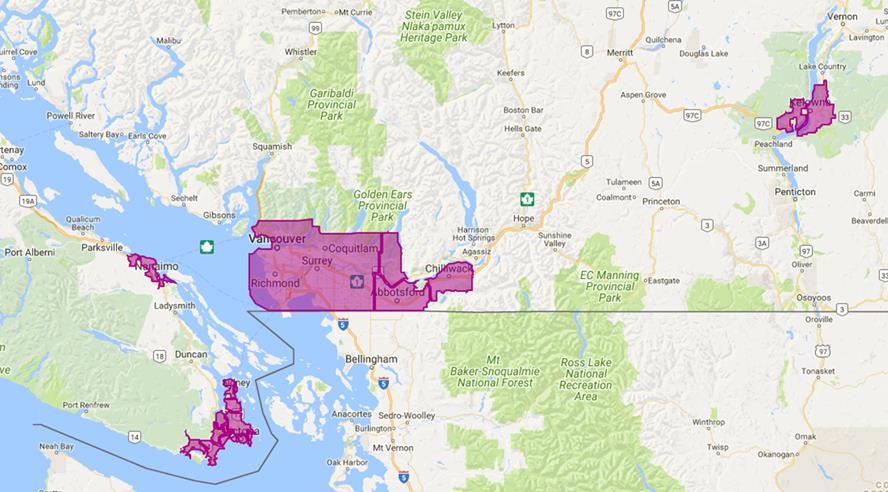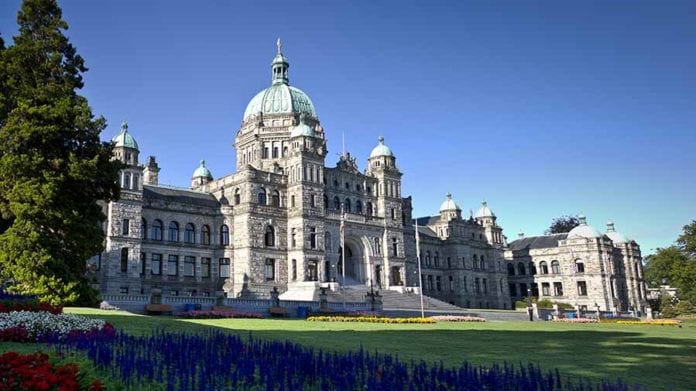Ever since the 2018 B.C. Budget was announced in February, one of the hottest topics in the province has been the implementation of the new speculation tax.
On Monday afternoon, Finance Minister Carole James announced some of the more specific aspects of the tax, revealing that 99% of British Columbians are not expected to be affected by it.
“Our government wants to make sure people who live and work here are able to find and afford a good home in their community,” said James.
“For too long, this housing crisis was allowed to escalate, and it has hurt working families, renters, students, seniors and others around the province. With this new tax, we’re targeting speculation in the housing market and freeing up vacant housing to be homes for British Columbians.”
But what exactly is the new speculation tax going to be? Who is it for? What are some of the responses?
Keep reading to find out.
What is the basic tax structure?
James’ announcement laid out some clear details of how much the ST is going to cost.
- British Columbian citizens and permanent residents who own secondary homes in designated areas will be charged 0.5% of the property value in 2018 and beyond.
- Canadian citizens and permanent residents who live outside B.C. will be charged 0.5% in 2018, and 1% in 2019 and beyond.
- Foreign investors and satellite families will be charged 0.5% in 2018, and 2% in 2019 and beyond.
Who qualifies to pay this tax?
The ST is meant to target people who own secondary housing units in designated urban areas and leave them vacant for long periods of time, causing inflation in real estate prices.
“We are going after speculators who are clearly taking advantage of the market, leaving homes vacant and driving up prices,”said James.
Furthermore, ST is only applicable to these designated parts of the province:
- Metro Vancouver (excluding Bowen Island)
- The Capital Region District / Greater Victoria (excluding the Gulf Islands and Juan de Fuca)
- Kelowna and West Kelowna
- Nanaimo-Lantzville (excluding Parksville and Qualicum Beach)
- Abbotsford
- Chilliwack
- Mission

Who is exempt from it?
According to the NDP government, 99% of British Columbians do not have to worry about this new tax.
“The speculation tax focuses on people who are treating our housing market like a stock market,” said James. “So people in smaller communities, those with cottages at the lake or on the islands, will not pay this tax. People with second homes outside of high-cost, designated urban areas will not pay the tax.
British Columbians who own vacant secondary homes valued up to $400,000 will receive a non-refundable tax credit that will offset the speculation tax, making it null.
People who own properties that cannot be rented out due to specific strata policies will not have to pay the ST, as they will be grandfathered into the current system for the time being.
Certain special circumstances will also elicit exemptions, such as:
- If the property owner has to live in a health-care facility
- Temporary absences due to work
- When the owner passes away and the property is being administered.
Responses
These specifications were announced after considerable protest from developers and people – not speculators – who own secondary vacation homes.
However, not everyone is satisfied with these amendments.
“After trying to implement taxes by trial and error, the NDP are now scrambling to come up with a plan,” says BC Liberal leader, Andrew Wilkinson.
“The updated version of this tax still doesn’t focus on speculators who are flipping homes and condos. Instead, the NDP introduced arbitrary boundary changes to exempted areas that appear to be politically motivated.”



